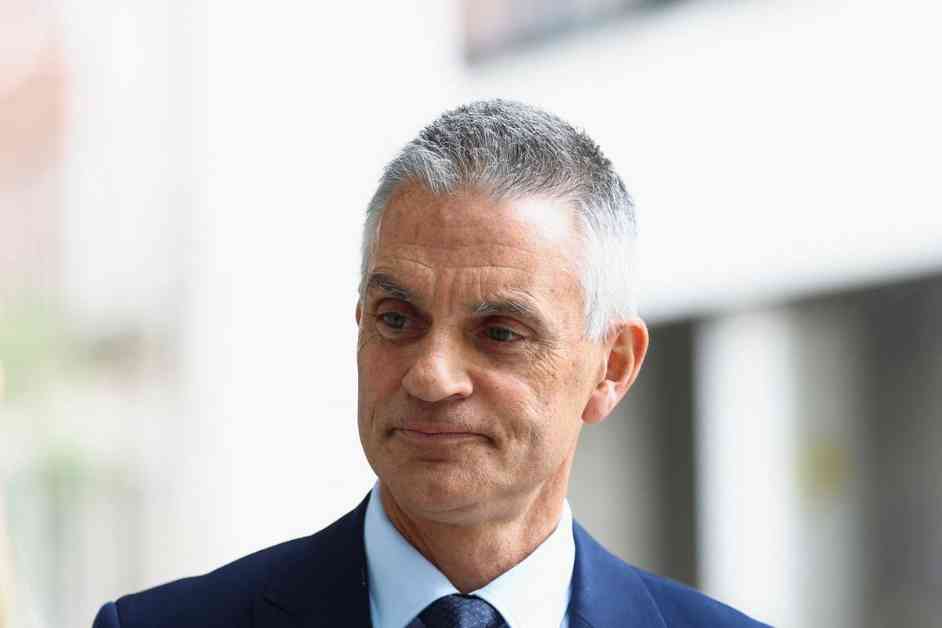Tim Davie, the chief of BBC, is under scrutiny after it was revealed that Huw Edwards, a BBC news anchor, received a £200,000 payment from his salary months after being arrested for serious offenses. Despite being suspended by the broadcaster, Edwards continued to receive his salary until he resigned in April due to medical reasons. The 62-year-old journalist later pleaded guilty to charges of making indecent images of children.
In addition to the controversial payment, it was disclosed that Edwards also received a £40,000 pay rise while he was mostly off-air. This revelation has sparked outrage, with Culture Secretary Lisa Nandy calling for Edwards to return the taxpayer-funded sum. Nandy emphasized that it was not a responsible use of taxpayers’ money for Edwards to continue receiving his salary after being arrested on such serious charges.
Tim Davie has stated that the BBC will explore all options regarding the situation with Huw Edwards. He acknowledged the legal challenges involved in recovering the funds, but emphasized that they are considering all possibilities. Despite the shocking nature of the case, Davie mentioned that the specifics were not widely known within the organization.
The controversy has raised questions about the BBC’s handling of the situation, as executives were reportedly aware of Edwards’ arrest in November. The Metropolitan Police had informed the BBC in strict confidence, yet the news anchor was not immediately dismissed and continued to receive his salary. Former BBC royal correspondent Nicholas Witchell condemned Edwards’ actions as “utterly deplorable” and called for him to repay the money he received following his arrest.
In light of this situation, it is important to consider the legal implications of paying an employee who has been arrested. According to employment law experts, suspended employees are generally entitled to receive their pay during the suspension unless there are specific contractual provisions in place. In most cases, an arrest can lead to dismissal, which would terminate the employer’s pay obligations.
The case of Huw Edwards highlights the complexities of managing such situations in the workplace. It serves as a reminder of the importance of transparency, accountability, and ethical conduct in all organizations, especially those in the public eye like the BBC. As the investigation into this matter continues, it remains to be seen how it will impact the reputation and operations of the broadcaster moving forward.












